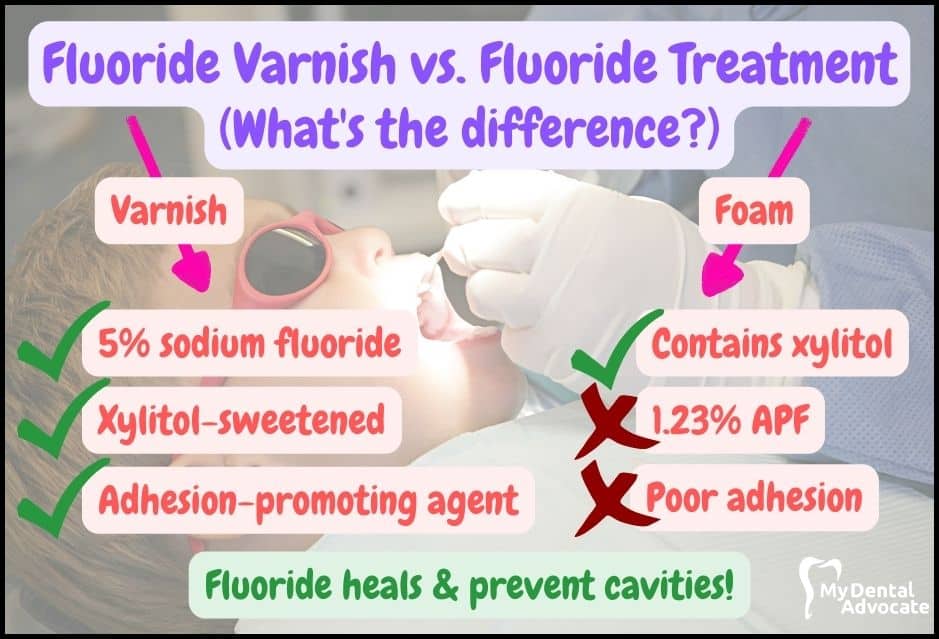Understanding Fluoride Treatments: Are They Necessary
Do you ever wonder if those fluoride treatments at the dentist are really necessary?
Picture this: a bright, white smile that shines like a pearl. That’s what fluoride treatments aim to achieve.
In this guide, we will explore the importance of fluoride and whether these treatments are truly beneficial.
You might be surprised to learn that fluoride has numerous benefits, from preventing tooth decay to strengthening enamel.
We’ll also discuss the different methods of fluoride application and address common concerns you may have about these treatments.
So, if you’ve ever questioned the necessity of fluoride treatments, keep reading to gain a better understanding of their role in maintaining a healthy, radiant smile.
Key Takeaways
– Fluoride treatments help prevent tooth decay and strengthen enamel.
– There are different methods of fluoride application, including gel/foam, varnish, rinses/mouthwashes, and supplements.
– Fluoride plays a crucial role in preventing tooth decay by protecting against acids and reversing early signs of decay.
– Concerns about fluoride treatments are addressed, and misconceptions about their safety and effectiveness are debunked.
The Benefits of Fluoride
There are three key benefits of fluoride that make it an important component in dental health.
Firstly, fluoride helps to prevent tooth decay. It does this by strengthening the enamel, which is the outer layer of the teeth. When the enamel is strong, it’s more resistant to acid attacks from plaque and bacteria. This means that fluoride can help to prevent cavities and reduce the risk of tooth decay.
Secondly, fluoride can reverse early stages of tooth decay. In some cases, when the decay is still in its early stages and hasn’t yet caused a cavity, fluoride treatments can help to restore the damaged enamel. This process is called remineralization, and it helps to repair the weakened areas of the teeth and prevent further decay.
Lastly, fluoride can help to reduce tooth sensitivity. If you experience discomfort or pain when consuming hot or cold foods and beverages, fluoride treatments can help to alleviate this sensitivity. Fluoride works by blocking the tiny channels in the teeth that transmit the pain signals, making your teeth less sensitive to temperature changes.
Different Methods of Fluoride Application
To apply fluoride, your dentist may use various methods to ensure optimal dental health.
One common method is the application of fluoride gel or foam. The gel or foam is typically placed in a tray that fits over your teeth. You then wear the tray for a few minutes, allowing the fluoride to penetrate your tooth enamel and strengthen it.
Another method is the use of fluoride varnish. The varnish is painted onto your teeth with a brush and left to dry. It forms a protective coating that slowly releases fluoride over time. This method is especially useful for children who may have difficulty using trays or rinses.
Fluoride can also be applied through a rinse or mouthwash. You simply swish the rinse or mouthwash around your mouth for the recommended amount of time and then spit it out. This method is quick and easy, and it can reach areas that may be missed by other methods.
Finally, there are fluoride supplements in the form of tablets or drops that can be prescribed by your dentist. These supplements are typically used for children who don’t have access to fluoridated water.
The Role of Fluoride in Preventing Tooth Decay
Fluoride plays a crucial role in preventing tooth decay. It’s a mineral that helps to strengthen tooth enamel and protect against the acids produced by bacteria in the mouth. When you consume fluoride through drinking water or dental products, it’s absorbed into your teeth. This strengthens the enamel and makes it more resistant to decay. Fluoride can also reverse early signs of tooth decay by remineralizing the enamel and preventing further damage.
Research has shown that communities with fluoridated water have lower rates of tooth decay compared to those without. In fact, water fluoridation is considered one of the greatest public health achievements of the 20th century. Fluoride is also present in toothpaste, mouth rinses, and professional dental treatments. Using fluoride toothpaste and receiving fluoride treatments from your dentist can further enhance the protection against tooth decay.
It is important to note that fluoride alone isn’t enough to prevent tooth decay. Good oral hygiene practices, such as brushing your teeth twice a day, flossing daily, and visiting your dentist regularly, are also essential. However, incorporating fluoride into your oral care routine greatly improves your chances of maintaining a healthy smile and preventing cavities.
Common Concerns About Fluoride Treatments
If you’re considering fluoride treatments, you may have some common concerns. It’s important to address these concerns so that you can make an informed decision about whether fluoride treatments are right for you. Here are a few common concerns that people have:
– Safety: One concern that some people have is whether fluoride treatments are safe. Rest assured, fluoride treatments are considered safe when used in the recommended amounts. The fluoride used in dental treatments is regulated and approved by dental associations and health organizations.
– Effectiveness: Another concern is whether fluoride treatments are actually effective in preventing tooth decay. Numerous studies have shown that fluoride treatments can help strengthen tooth enamel and reduce the risk of cavities. However, it’s important to note that fluoride treatments should be used in conjunction with good oral hygiene practices, such as regular brushing and flossing.
– Side effects: Some people worry about potential side effects of fluoride treatments. While rare, some individuals may experience minor side effects such as an upset stomach or mild irritation. However, these side effects are usually temporary and resolve on their own.
– Cost: Cost is another concern for many people. The cost of fluoride treatments can vary depending on factors such as location and dental insurance coverage. It’s important to discuss the cost with your dentist and determine if it fits within your budget.
Debunking Misconceptions About Fluoride
Don’t fall for the misconceptions surrounding fluoride treatments. There are several common myths that circulate about fluoride, but it’s important to separate fact from fiction.
One common misconception is that fluoride treatments are only necessary for children. However, fluoride treatments benefit people of all ages by strengthening tooth enamel and preventing tooth decay.
Another misconception is that fluoride treatments are harmful and can cause health issues. In reality, when used in appropriate amounts, fluoride is safe and has been proven to be effective in preventing cavities.
Some people also believe that fluoride treatments make teeth weak or discolored. This isn’t true. Fluoride actually strengthens teeth and helps to restore the minerals that have been lost due to acid attacks.
Lastly, there’s a misconception that fluoride treatments are unnecessary if you have good oral hygiene habits. While brushing and flossing are important, fluoride treatments provide an extra layer of protection against tooth decay.
Frequently Asked Questions
How Often Should Fluoride Treatments Be Done?
How often should fluoride treatments be done?
It’s recommended that you have fluoride treatments done every six months to maintain optimal dental health. These treatments help strengthen your tooth enamel and protect against cavities.
Regular fluoride treatments can be especially beneficial for individuals who are at a higher risk for tooth decay, such as those with a history of cavities or dental problems.
Your dentist will assess your specific needs and determine the appropriate frequency of fluoride treatments for you.
Are Fluoride Treatments Safe for Children?
Fluoride treatments are safe for children. They help in preventing tooth decay and strengthening the enamel. Dentists recommend fluoride treatments to protect your child’s teeth from cavities and maintain good oral health.
These treatments are quick, painless, and can be done during regular dental check-ups. It’s important to follow your dentist’s recommendations and ensure your child receives the appropriate amount of fluoride to reap the benefits and promote healthy teeth.
Can Fluoride Treatments Cause Tooth Discoloration?
Fluoride treatments can cause tooth discoloration if used excessively or in high concentrations. However, when used properly, fluoride treatments are safe and effective in preventing tooth decay.
It’s important to follow the recommended guidelines and consult with your dentist to determine the appropriate frequency and concentration of fluoride treatments for you. Regular dental check-ups can help monitor any potential discoloration and address it promptly.
Are There Any Side Effects From Fluoride Treatments?
There are some potential side effects from fluoride treatments, but they’re generally minimal. Most commonly, you might experience a slight irritation of the gums or a temporary change in taste.
In rare cases, excessive fluoride intake can lead to dental fluorosis, which causes white spots or streaks on the teeth. However, when fluoride treatments are administered by a dental professional in the proper dosage, the benefits far outweigh the risks.
It’s important to follow your dentist’s recommendations for fluoride treatment.
Can Fluoride Treatments Prevent Cavities in Adults?

Fluoride treatments can indeed prevent cavities in adults. By applying a concentrated fluoride solution to your teeth, the enamel becomes stronger and more resistant to decay. This is especially beneficial for those who are at a higher risk of developing cavities.
Regular fluoride treatments, combined with proper oral hygiene, can significantly reduce the occurrence of cavities in adults. So, if you want to maintain a healthy smile, consider getting fluoride treatments as part of your dental care routine.
Conclusion
So, are fluoride treatments necessary? The answer is yes.
Fluoride has proven benefits in preventing tooth decay and promoting overall dental health. Whether it’s through toothpaste, mouthwash, or professional treatments, incorporating fluoride into your oral care routine is essential.
Don’t let common concerns and misconceptions det news er you from reaping the benefits of fluoride. Talk to your dentist about the best fluoride options for you and keep your smile healthy and strong.

Welcome to my website! I’m Declan Gaffney, a dedicated and passionate Preventive Dentist with years of experience in promoting oral health and providing top-notch dental care. I am thrilled to share my knowledge and expertise with you through this platform.

